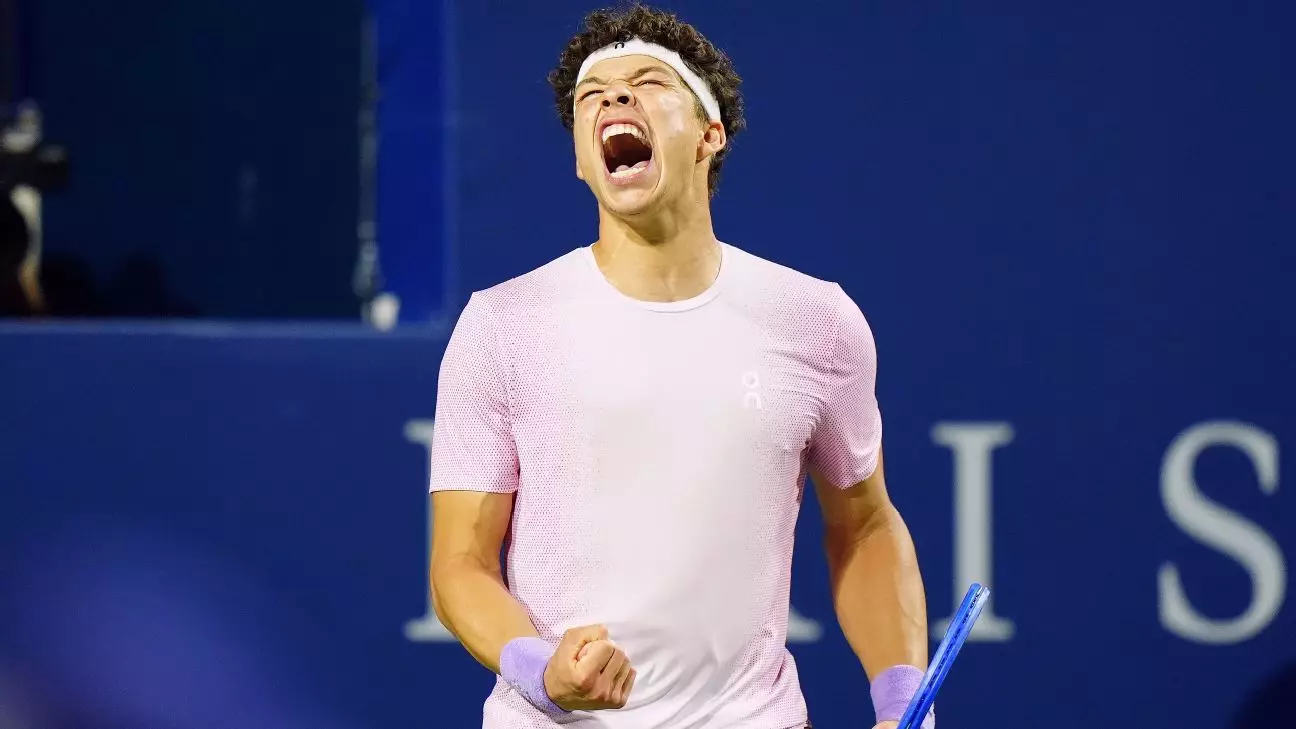In professional tennis, talent alone seldom guarantees victory; it is resilience and mental fortitude that often sway the outcome. Ben Shelton’s recent showdown at the National Bank Open exemplifies this truth. Trailing in the decisive third set and facing a formidable opponent, Shelton refused to succumb to pressure. His ability to turn the tide from a 4-2 deficit, especially amid intense exchanges at the net, underscores how mental resilience can propel athletes beyond their physical limitations. This match wasn’t merely about strokes and serves—it was a testament to unwavering focus and strategic adaptability under duress.
What differentiates champions today isn’t just their shot-making but their capacity to maintain composure when the stakes are sky-high. Shelton’s reflection on his performance reveals a mindset that prioritizes grit over perfection. Recognizing struggles with his primary weapons, he still managed to rally back through mental toughness. This shift from a focus on technical execution to psychological resilience marks a paradigm shift in competitive sports, making resilience the true currency of success.
Strategic Adaptability: The Key to Overcoming Opponents
Matches like Shelton’s highlight the importance of strategic flexibility. Facing Flavio Cobolli, a skillful player with two tour titles on clay, Shelton had to adapt his game plan on the fly. His acknowledgment of struggling with his serve and forehand late in the match indicates an honest assessment of his weaknesses. Yet, his ability to find solutions in real-time—reducing unforced errors, adjusting placement, and increasing consistency—demonstrates a matured understanding that victory often belongs to those who can think critically under pressure.
This adaptability becomes even more crucial as competition intensifies. Elite players aren’t just executing predefined strategies; they are continuously recalibrating in response to their opponents’ tactics. Shelton’s comeback showcases a mental agility that is perhaps more valuable than raw power. It calls into question traditional notions that skill alone wins matches, advocating instead for a holistic approach that combines physical talent with strategic and psychological flexibility.
The Human Element: Emotional Intensity and Competitive Integrity
Post-match, Shelton and Cobolli’s heated exchange at the net revealed the emotional intensity inherent in high-level competition. Such moments often get dismissed as momentary lapses, but they are, in truth, reflections of the raw passion that fuels athletes. While the discourse may seem impulsive, it underscores the importance of emotional regulation—both in channeling passion productively and in maintaining sportsmanship.
This human element adds layers of complexity to professional tennis; it’s not just about scoring points but also about managing inner emotions amid external chaos. Shelton’s candidness about the challenge he faced—being “down and out”—makes him relatable. It humanizes the sport, reminding us that even the most polished athletes are vulnerable. The best competitors are those who can harness their emotional intensity without it becoming a distraction, transforming adversity into motivation rather than regret.
The Future Leaders: Young Athletes Redefining the Game
Ben Shelton’s ascendancy, marked by his 100th career win at just 22, signals a new era of youthful exuberance coupled with mature resilience. His capacity to win on different surfaces, coupled with his growing mental toughness, suggests that the future of tennis belongs to versatile players capable of adapting and thriving under pressure.
Moreover, figures like Shelton exemplify how emerging players are rewriting what it means to succeed in modern tennis. Their emphasis on mental strength, emotional control, and adaptability transcends traditional skill sets. As more young athletes embrace these qualities, we can expect to see a shift—one where resilience, rather than just raw talent, becomes the defining feature of champions. These players are not just competing; they are learning to thrive in one of the most mentally demanding sports, setting a precedent that may well uplift the entire tennis ecosystem.

